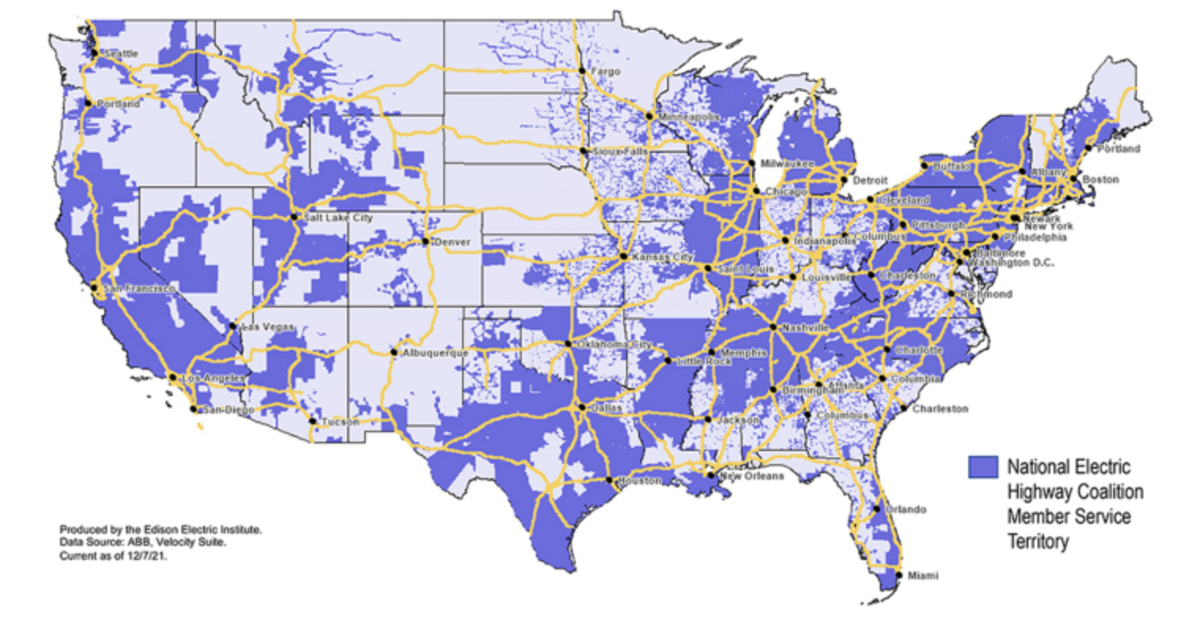
More power providers are getting involved in the drive to make owning and operating an electric vehicle (EV) easier and more practical.
The latest is the 50 U.S. power companies that have joined the
National Electric Highway Coalition. They plan to build a coast-to-coast fast-charging network for EVs along major U.S. travel corridors by the end of 2023. The new network merged the Midwest EV Charging Collaboration and the Electric Highway Coalition.
Along with investor-owned utilities, the network includes
Midwest Energy, a member-owned electric and natural gas cooperative serving 93,000 customers in 40 counties in central and western Kansas, and the Tennessee Valley Authority. Other cooperatives are watching the coalition and considering membership, according to Midwest Energy CEO Pat Parke.
EV Charging Network Could Ease Driver Range Anxiety
With more than 120 miles of I-70 running through its service area, Midwest Energy was intrigued by the possibilities to expand the use of EVs through the coalition.
With lower EV ownership in rural areas, Midwest Energy is determining the kinds of incentives and programs that will encourage greater adoption and use while also developing infrastructure to support expanded demand for electricity.
“Special electric rates are not a top priority for us because EVs are not widely in use,” Parke said. Lower prices and improvements in vehicle range “will be far better drivers of EV purchase decisions than whether or not we have a lower rate,” he added.
Midwest Energy has recently completed two studies to gauge EV adoption interest among its members. A randomly selected mail survey received more than 1,400 responses with a majority of them coming from those 50 years old or older and 26 percent saying they would consider purchasing an EV. An online survey received almost 500 responses with the majority of them from those 50 or younger and half saying they would consider purchasing an EV. These surveys will influence the timing of incentives as well as inform the cooperative on the size of the potential market. Signs point to substantial growth, according to Parke.
The cooperative expects to eventually offer lower priced off-peak rates for the estimated 80 percent of EV charging that occurs at home. Residential Level 2 240-volt chargers cost about $1,200 compared with about $75,000 for the kind of direct-current fast charger typically installed for public use.
Cooperative Focused on Partnering with Private Companies to Deploy Chargers
Midwest Energy has not followed the path of some other cooperatives by installing public charging stations in its service regions. Instead, it is working with private companies interested in deploying chargers at travel centers along I-70.
Another indicator of future EV growth and adoption is investments by automakers—$330 billion in the technology by 2025. Work vehicles, like the all-electric Ford F-150 pickup truck, are expected to make greater inroads in rural areas and appeal to businesses. Midwest Energy is planning to add the vehicle to its own fleet.
“The economy as a whole is betting on EVs,” Parke said.
